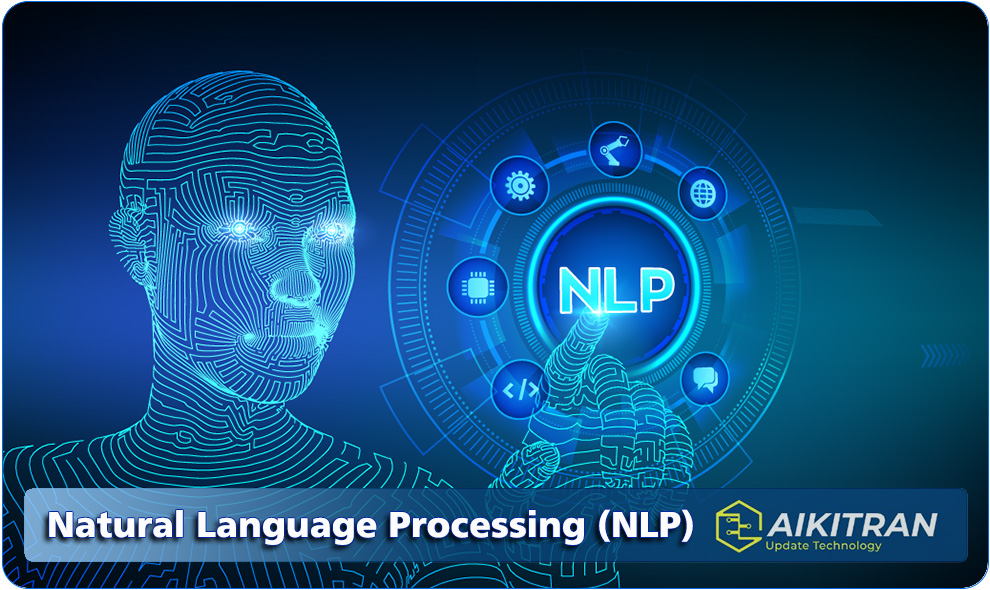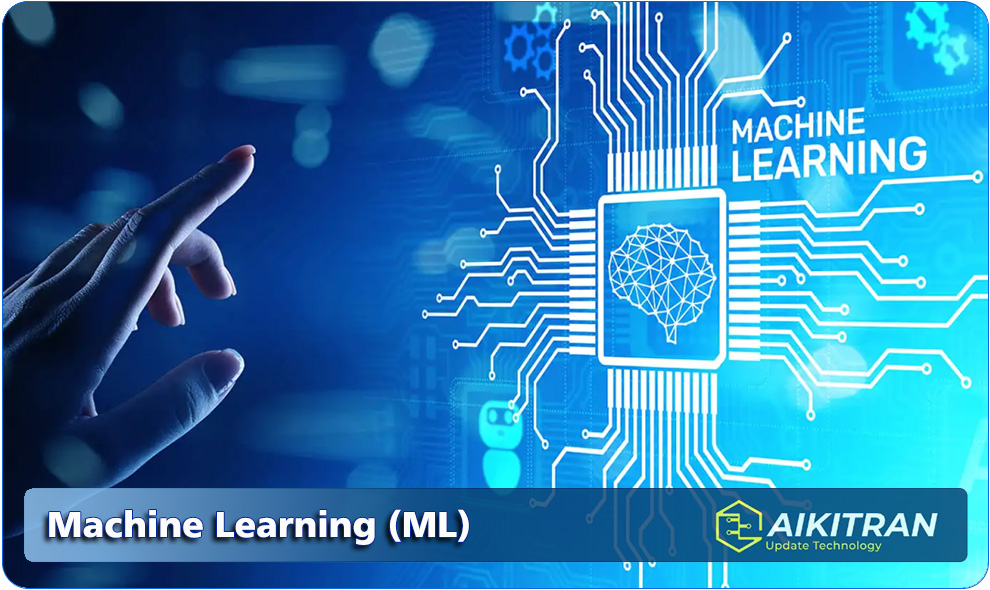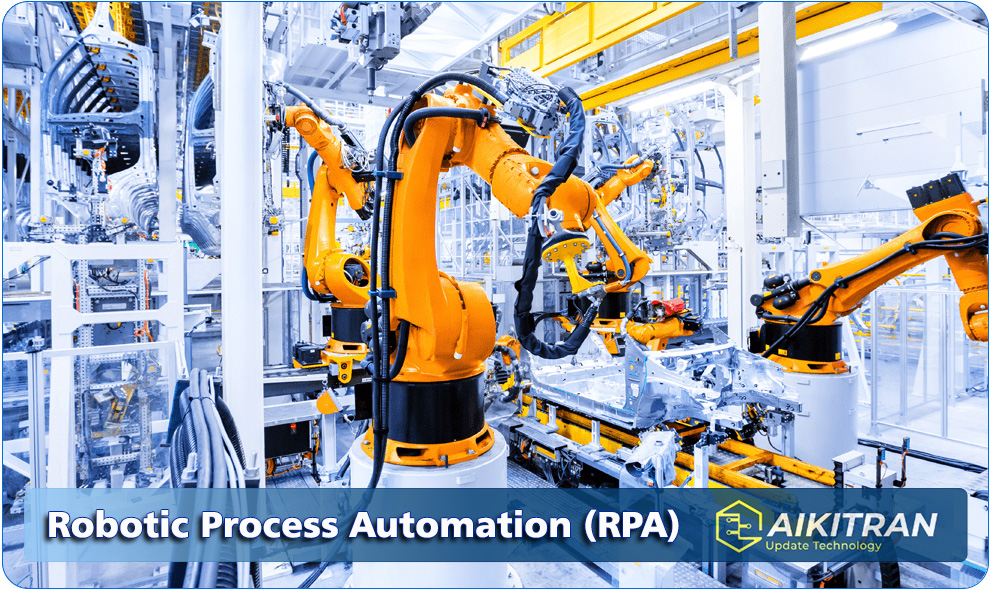AI for Customer Service: AI Revolution: 4 Cutting-Edge Strategies for Transforming Customer Service Excellence
AI for Customer Service: AI can improve customer service response times by automating mundane tasks like answering FAQs or routing calls to the appropriate agents. AI also makes it easier for teams to comprehend customer emotions and context when discussing customer issues.
AI for Customer Service: To use AI effectively, make sure that the model has been trained on customer data and integrated into customer support workflows so it can provide insight or assist human agents as necessary. This way AI can assist human agents by offering guidance or assistance when required.

Natural Language Processing (NLP)
Natural Language Processing (NLP) is a branch of AI and machine learning (ML) that enables computers to understand human speech. NLP technology powers chatbots that use natural language to answer customer inquiries and offer feedback; as well as being utilized in multichannel feedback collection to automatically process textual and voice data and offer insight. NLP can be an indispensable asset for businesses that wish to automate data collection across complex, multichannel environments.
AI for Customer Service:: NLP allows automated responses to repetitive inquiries and simple questions, freeing employees to focus their attention on more complex customer issues that require human interaction. NLP can also automate sentiment analysis to give companies an accurate view of customer experiences and pinpoint areas for improvement.
No matter if it be phone call, email, or social media message – NLP can use its artificial intelligence tools to quickly analyze unstructured data, identify patterns in language usage, filter out irrelevant data, and compile meaningful lists for business leaders to use when making better decisions. NLP also helps identify sensitive customer feedback that must be protected to meet regulatory compliance.
NLP can detect and mask customer data to protect it against identity theft as well as avoid costly legal ramifications for businesses.
Businesses leveraging NLP can harvest data from numerous channels and automate time-consuming tasks, like transcribing audio or screening customer calls. Software like Qualtrics XM Discover can process thousands of hours of audio within an hour while NLP-powered technologies like chatbots can quickly transcribe and analyze customer feedback compared to human input – this enables businesses to provide more accurate and tailored service, increasing customer loyalty while driving revenue growth.
You must read… TOP 5 LIST OF AI CHATBOTS: KNOW MORE ABOUT IT
Machine Learning (ML)
Machine learning is one of the most efficient means of improving customer service, enabling chatbots to detect relevant patterns within large data sets and respond intelligently. Furthermore, machine learning can also provide human agents with essential training that equips them for excellence on the job.
AI applications in customer service span from identifying patterns in customer feedback to improving real-time responsiveness. Plus, AI’s highly scalable nature and ability to adapt easily make it an excellent solution for both startups and established enterprises looking to optimize their support processes.
One of the primary uses for machine learning in customer service is identifying and anticipating customer needs, often through analysis of behavior such as purchasing habits or browsing history. By doing this, businesses can offer personalized experiences for their customers.

Customer service companies that use Machine Learning for customer service purposes can take advantage of AI bots to automate repetitive tasks and free up human representatives for other duties, which is especially helpful for companies that handle high call volumes or provide 24/7 support services. An AI chatbot, for instance, could perform tasks like answering FAQs and resolving repeat issues – both of which would otherwise eat up much needed agent time.
With these tools, employees can focus on more complex issues while offering customers a superior customer experience. Furthermore, Machine Learning (ML) technology can detect why customers contact customer support, making the process more streamlined for all parties involved.
For instance, when customers contact a company about issues with their product, a bot can store that conversation within its database so that when another customer calls in with similar problems it can quickly refer back to it and offer the appropriate solutions. Machine learning will save both representatives and customers time while providing accurate information. For more information on how machine learning can enhance customer service, check out ThinkOwl AI Customer Service platform. Artificial intelligence, low code technology, hyper-automation, business process modeling and case management come together seamlessly in this solution to efficiently address customer issues across communication channels, industries and resolution types. Sign up now for a free trial to test it out for yourself!
Artificial Intelligence (AI)
AI uses predictive analysis, machine learning, natural language processing and computer vision technologies to interpret customer queries and deliver accurate responses that are contextual. Furthermore, it can analyze customer data for patterns or suggest relevant solutions.
Artificial Intelligence (AI) in customer service helps streamline workflows by automating repetitive tasks, freeing agents to focus on more challenging cases. Furthermore, AI tools like chatbots and intelligent virtual assistants (IVA) provide 24/7 support by answering frequently asked questions or solving common problems without requiring human assistance.
Establishing and overseeing AI in customer support takes careful planning. Your customer service software must be designed to integrate AI seamlessly, without creating glitches in existing processes and eliminating glitches. Furthermore, make sure AI understands its capabilities and limitations to prevent miscommunication or creating unrealistic customer expectations; such as when it needs to forward complex problems over to an agent in order to prevent confusion about who’s accountable for handling them.
To get the most from AI, it is critical that we use accurate and complete data when training our model. To do this effectively, clear and consistent labels should be created for categorizing information, while making sure this aligns with business goals. In addition, your AI should continue being trained based on new information, customer interactions and feedback to stay effective.
Finally, usability testing is the ideal way to assess AI tools for customer service purposes. It allows you to assess functionalities such as query handling, data access and user interface design before gathering feedback from potential users who could help identify any issues or friction points before rolling out your AI tool.
Robotic Process Automation (RPA)
Robotic process automation (RPA) helps customer service teams automate repetitive and high-volume processes that were traditionally manual and time consuming, such as data entry, form processing and information retrieval. By automating such routine activities customer service agents can focus on more challenging yet value added work that enhances customer satisfaction and loyalty.

Automated processes reduce errors that lead to customer dissatisfaction, and RPA software provides greater flexibility than its human counterparts by scaling up or down in response to fluctuating demand, helping prevent bottlenecks during busy periods.
Companies often struggle to meet customer requests and questions quickly and satisfactorily, which often leads to lengthy phone calls or email chains with agents and customers alike. RPA solutions may help address this challenge by automating initial customer service steps: bots can automatically update customer information or enter data into CRM or ticketing systems thus eliminating manual data entry errors while saving agents valuable time.
RPA technology can also facilitate customer self-service options by automating responses to frequently asked questions. RPA bots can provide step-by-step instructions, troubleshooting guides or links to relevant resources in order to help solve customers’ issues without agent intervention.
RPA bots can also be invaluable for e-commerce companies where information can be scattered across various databases and difficult to compile in a timely manner. An RPA bot could extract shipment tracking or delay details from one database and send out standard emails about them; or use data from marketing or IT databases to answer common customer inquiries regarding coupons, products, or logins.
As businesses transition toward more digital customer-centric models, AI and RPA tools have become essential for creating an exceptional experience for customers. Unfortunately, implementing this technology can present its own set of unique challenges; to maximize its benefits effectively it’s crucial that teams understand its limitations as well as ways they can combine multiple solutions together to form powerful solutions.